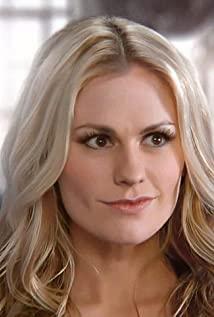For the time being, let go of the entanglement of love, the waves and the wind, the piano music, and let me talk about some rational things.
The title of the article could also be called, The ignorance of civilization or the triumph of barbarism. Yes, civilization is ignorant and cruel.
Seeing Ida playing the piano in a fascination with a wooden table, her husband Stuart worriedly asked his family what it meant, including her long-standing silence. One of his family members, one of the old women pointed to his head and said, "I'm afraid there is a mental problem here." Yes, yes, that's it, from here, the relationship between civilization and madness and savagery starts to jump into my head, pay attention If you look at it, you can find that the contradiction between the two runs through the subsequent stories. Ada, who hasn't spoken since she was 5 or 6 years old, was tolerant of her abnormality by his father, who gave the behavior a Poe-like definition—perhaps a dark force. But in the eyes of Stewart and his family, this is abnormal, contrary to the behavior of most people in society, and far from normal, so it is defined as a mental problem. See no, how intolerant of so-called civilization and norms, unable to respect individual characteristics - namely Ada's love for the piano and the unspeakable obsession with silence.
When Ada learned that the piano was going to belong to Bein and that she was going to be Bein's piano teacher, she was furious, she said: "He's a savage, he can't even read, he's not literate, he can't let him touch me The prejudice of "Jin" Ada as a lady, that is, a civilized person, against the natives of the island like Bein is evident, but the development of the story has completely overturned this prejudice - Ada gave her own spirit and flesh. to Bein.
After Ada wrote "the piano is mine" on a piece of paper, her husband Stuart was also blown away, he said that as a member of the family you have to obey the family rules, you have to Make some sacrifices (that's probably what it means), look, look, it's the rules again, here we can see invisibly many middle-class elite families (don't know if that's the right name), whether past or present A set of things that follow the rules, if it is popular, it is called pretending, pretending to be serious, who should I show it, or show culture? Or in order to maintain the authority of men (Stuart) as patriarchs, the brutality of civilization is highlighted, rational rules stifle emotional appeals, and the venting of blocked emotions is vented in Bein's hut.
Stewart is the epitome of civilization, the epitome of many honest, dogmatic men, the head of the family at home, strictly abiding by the rules of his society and upholding them. He has a special kind of neuroticism, cultivated, timid. Ada's daughter, after seeing her mother hugging and kissing naked with Bein, hugged a tree with a group of Aboriginal children and imitated kissing and caressing. This scene was seen by Stewart, who said angrily that this was an insult to the tree , and asked the little girl to wipe the trees she kissed with a bucket. I laughed at that time, is it necessary, a tree is a tree, a person is a person, and who is this pretending to be? Maybe it's not pretense, it's the education and culture that their kind of "gentleman" has received over the years, and it's still sad. I read in an ancient article that someone keeps their clothes neat and dignified when they are alone. Isn't that nothing to look for? It's nice to have a slack waist and scream to the sky. Just like the indigenous people on the island, they looked at the group of cubs who were "in heat" hugging the tree and just laughed. They were naive and ignorant, so let them play freely.
I have seen this movie twice, the first time was when I was in the first or second year of junior high school, and the most recent was last night. When I saw Stewart hid under Bein's wooden house and eavesdropped on her wife and Bein's affair, I felt very uncomfortable. At that time, I was probably more concerned about the entanglement and worry about the condemnation of the offense when it was discovered. But now I just think it's ridiculous. When you see you and you are shocked, you go up and beat him or grab your wife and teach him a lesson. Catch this couple of adulterers and prostitutes, but you cower and hide under the house. What's the point of waiting for your wife's button to fall on your chest, you coward. Of course, I have a hunch that this has something to do with the education he has received over the years about etiquette, civilization and culture. When he rushed out, his humiliation was clearly displayed in front of him. Maybe out of face and disbelief in reality, He chose to keep his wife at home after the incident, imprisoned, and saved in vain.
There is also a plot that shows the conflict between desire and reason (can this be called reason?). Ada ignited her lust because of her thoughts of Bein, and caressed Stewart at night as a relief. Stewart's reaction was very violent, but he still restrained, yes, there was Ada's resistance to him, but it was as good as his. The attitude can be tougher, so that she can feel the possession of caring and loving care. She, such a lonely and hungry woman, will not necessarily refuse. After all, it is her who caresses and who provokes love.
Stewart's family always asked him if she was close to you, and he always said, take your time, she will always be close. I just thought about it, you are the one who doesn't let her touch her most beloved qin, who forcibly imposes your will on his wife's strong reluctance for 80 acres of land, and who will never listen to and appreciate the sound of his wife's qin , how to get her close. Of course, this is not a criticism of him, he is just a lot of universal culture, starting a family, a well-off family, and moral standards. . . The aggregate, he also has his own personality, he can also be angry, but those are small and sad, under the savage, raw emotion.
On the other hand, Ida and Bein. Ada, this woman has a pale and indifferent face, and wears only black all day long, as if a serious ascetic dress. But she has been "disordered" since she was a child, she doesn't speak, she loves the piano madly, and it's amazing that she has such an old child at such a young age, and we later learn that it is he and A teacher's child, they were in love with each other at the time, and then blew it, then it was concluded that he was a mother who was pregnant out of wedlock, but his father obviously doted on this daughter and tolerated her so-called abnormality. It is the victory of emotion over reason. All this shows that this is an "indigenous" who follows his inner needs and is out of tune with the society at that time. Her later affair with Bein proved it even more.
Bein, this man, I don't need to go into details. After reading it, I know that this man is really shameless and can do anything. . . However, he really appreciates Ada, maybe not Ada's sound, but there is no doubt that he was deeply fascinated by Ada when she played the piano. If he is infatuated with her, he will use various methods to approach her, keep her, touch her, kiss her, not just waiting for her to fall in love. Is this possible? !
I think the director chose New Zealand as the filming location, and with such an era as the background, it fits with the development of the story. In New Zealand at that time, wild and fresh Western civilization coexisted abruptly (the contrast between the Aboriginal cemetery and Stewart's fence, the virgin forest around the Bein's house and the cut down trees around the Si's house). The original fury and passion that still exists on this island, like Ada's inner world ("passion has no limit" in the movie trailer), and New Zealand as far as I know is mostly temperate oceanic climate, mostly, This kind of weather is always warm, and the waves and storms in the movie show the passion in gentleness
. There's an ironic scene in the movie - one of Stewartgar's old women pees on the side of the road in the woods, and the others help her hide with a large shawl, and the man in the scarf is holding his hand. Down, the one who peed said "up up up" The shawl went up and down, she said "up up up" again, and then a bird came and everyone was startled. Such sheltering in the almost pristine forest is in stark contrast to the naked breasts of the natives and the naked butts of men, which is superfluous and cumbersome, so the irony is highlighted, that is, the civilization that imprisoned freedom is unnecessary. sarcasm and opposition.
There is a passage in the film about the performance of the Oedipus complex. The Oedipus complex is usually the son's attachment to his mother, but here it is expressed as the possessiveness of Ada's daughter, a girl who lacks the role of father, to her mother. In order to have sex with Bein, her mother told her to stay at home very fiercely. Maybe she felt a crisis subconsciously. On the surface, it was expressed as cursing her mother and accusing her of cheating, just because she was too young. Therefore, her behavior was childish and cruel. Of course, she didn't want her mother to be hurt. She just wanted to avenge the sudden distraction of her mother, who had always been paying attention to her, in order to regain her attention (later her mother cut her finger off her). Also crying so sad, that's not what she wanted to see).
Of course, this is the messy rational analysis I see in the love corner. First of all, I saw love, that kind of naked, the desire for mutual appreciation for care and understanding, the desire for carnal desire, the original and beautiful feeling. I want to say that tolerance understands tolerance and respect.
Of course, the beauty of this film cannot be ignored. Even though this movie made me tangled and disgusted many years ago, I still can't forget the wet melancholy and wild beauty, a certain artist's temperament. Also, I love the film's interludes, especially the theme song (the promise), there's an unspeakable lasting appeal in the lingering notes.
The film and the thorn bird made me dream of New Zealand's endless, always sticky green grassy mountains.
The film reminds me of The Veil, Bind Me, Bind Me, and Foucault's discourses on madness and civilization, discipline and prison.
Written in a hurry.
View more about The Piano reviews











